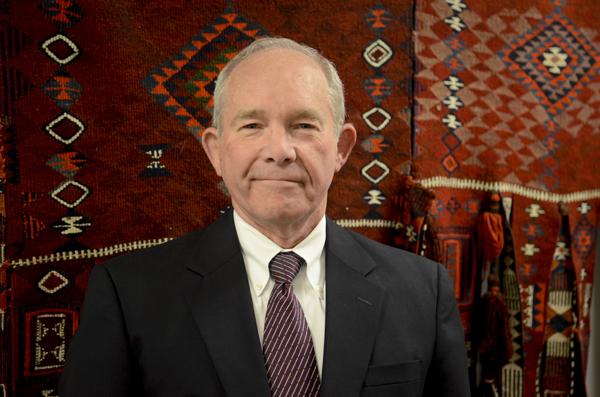A $4 million gift from the Kuwaiti government last week brought the total amount donated by the Middle Eastern country to the University to nearly $13 million – strong support from a small country as GW looks to globalize.
The Elliott School of International Affairs has forged a strong relationship with Kuwait through former Ambassador Edward Gnehm, whose position as a professor for Gulf and Arabian Peninsula affairs is endowed by its government. Gnehm, an alumnus and former student government leader, served as ambassador to Kuwait in the early 1990s when Iraq occupied the country.
“In the Middle East, relationships are always very personal. Friendships mean a lot,” Gnehm said. “What you do with and for people mean a lot. The fact that I was ambassador to Kuwait during the time they were in exile, it was sort of a high-profile part of the liberation, and it was something they never forgot.”
The most recent donation in a series of gifts will continue to provide funding for the the Institute for Middle East Studies, as well as aid graduate students. Donations have also supported Gelman Library’s Middle East and North Africa Research Center, created new classes, strengthened existing programs and brought speakers to campus.
Marc Lynch, director of the Institute for Middle East Studies, said the endowments from the Kuwaiti government had helped the institute develop Arabic programs and hold a range of programming events.
“[Gnehm] understands the importance of educating young people to better understand the Middle East region and has supported us in this endeavor,” Lynch said in an email.
The University received a $4.5 million endowment from Kuwait in 2011, which created the Middle East and North Africa Research Center. It also received $1 million in 2008 and $3.4 million in 2005.
Kuwait lies between Iraq and Saudi Arabia and has a population of 2.6 million people. Twelve students from the country are enrolled at GW.
Current ambassador of Kuwait Salem Al-Sabah presented the gift to Gnehm and University President Steven Knapp in D.C. earlier this month, and they discussed how to increase opportunities for students and faculty members in both countries.
The Elliott School also receives an endowment from the Korea Foundation of the Republic of Korea, although Lynch said the relationship with Kuwait was unique for the Institute of Middle East Studies.
Gnehm said Kuwaiti government leaders had been eager to support the institute over the years, often asking how they can support the program.
“I often go back. I’ve spoken there, I’ve hosted them here. It’s a fairly normal relationship between friends, really,” he said. “It gives us a stability and we aren’t really drawing that from student tuition or others. We have this gift which will enable us to support our middle east program, so it’s very nice.”







